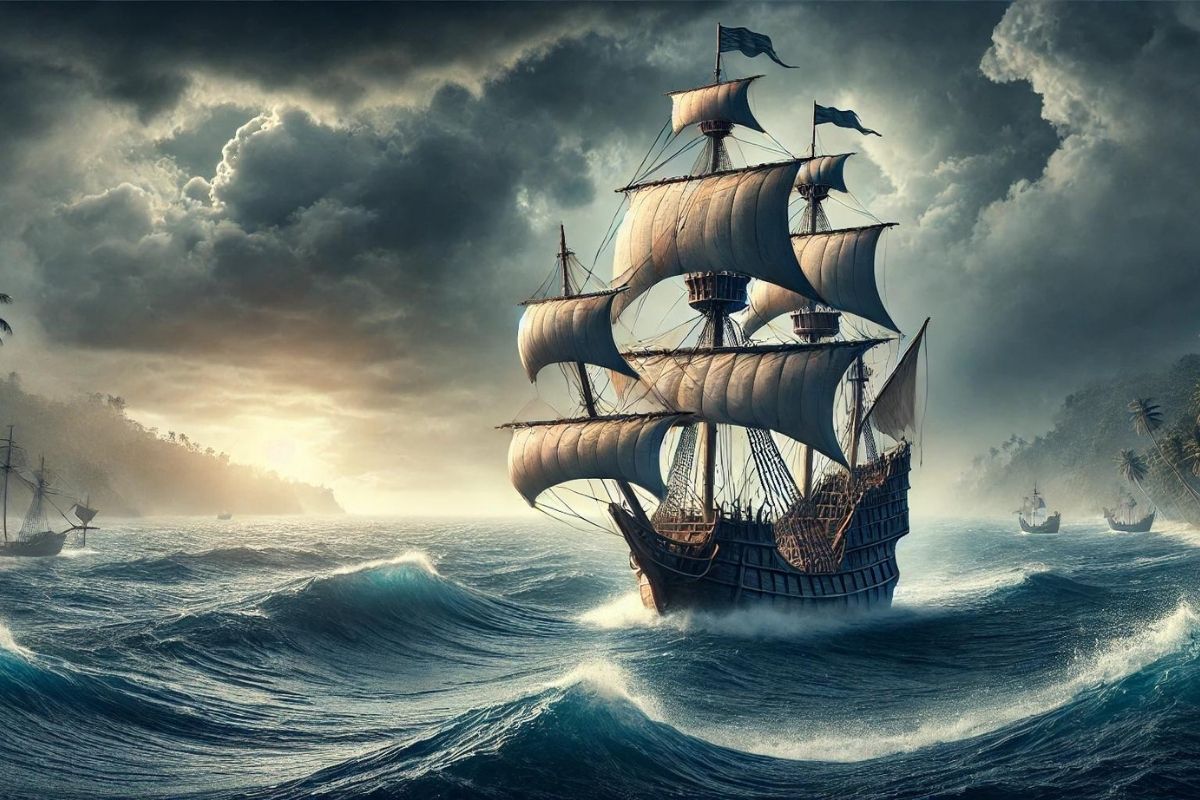In the records of history, the Global Influence of Portuguese Maritime Exploration remains as a fantastic section that reshaped the world in manners that are as yet felt today. During the fifteenth and sixteenth hundreds of years, Portugal, a little Iberian country, spearheaded a period of global exploration that not just extended the topographical information on the world yet in addition laid out maritime courses that connected landmasses, societies, and business in a phenomenal global organization.
The Opening of New Maritime Routes
The journey to find new shipping lanes to the worthwhile flavor markets of the East was one of the essential inspirations driving Portuguese maritime exploration. The milestone journey of Vasco da Gama in 1498, which finished in arriving at Calicut on the Malabar Shoreline of India, bypassing the conventional land courses constrained by Center Eastern powers, denoted a huge leap forward in maritime route.
Da Gama’s course around the Cape of Good Desire to India exhibited the capability of ocean travel to lay out direct exchange joins with Asia, dodging the monopolistic control of the Ottoman Realm over the flavor exchange with Europe. This carried tremendous abundance to Portugal as well as prompted the foundation of a Portuguese maritime domain that extended from the shores of Africa to the islands of Indonesia.
The launch of these new maritime courses had significant ramifications for global exchange organizations. It prodded a period of rivalry among European powers for maritime strength and provincial development, fundamentally affecting the political scene of the cutting edge world. Besides, it worked with the ascent of Europe as a predominant power in global issues, turning the focal point of monetary power from the East toward the West.
Cultural Trades and the Spread of Christianity
Portuguese travelers were not simply merchants and victors; they likewise assumed a vital part in the spread of Christianity. Evangelists frequently went with brokers and officers to switch the recently reached people groups over completely to Christianity. The foundation of preacher posts across Asia and Africa was essential in coordinating neighborhood social orders into the global Christian people group.
The Jesuit missions, especially under figures like Francis Xavier, were instrumental in such manner. Their endeavors spread Christianity as well as worked with a more profound social trade, including the exchange of European science, craftsmanship, and writing to Asia, as well as the other way around. This trade advanced both European and Asian social orders, presenting new yields, creative styles, and mechanical developments across landmasses.
Impacts on Global Route and Cartography
Portuguese adventurers contributed essentially to the area of map making and global route methods. The requirement for exact route during long ocean journeys prompted advancements in transport plan, navigational instruments, and planning methods. The formation of the Portuguese nautical graph, or the “Padrão Genuine,” which consolidated firsthand perceptions of maritime courses, wind examples, and sea flows, was basic in improving the security and effectiveness of significant distance ocean travel.
Ruler Henry the Guide, a critical benefactor of Portuguese exploration, laid out a school of route that pulled in the best personalities in science, stargazing, and map making of the time. The advancements created here laid the basis for the Time of Revelation and empowered European mariners to explore the globe with more noteworthy certainty.
Economic Changes Through Exchange and Colonization
The zest exchange was only the start of the financial effect of Portuguese maritime exploration. The foundation of provinces in Africa, India, and Brazil opened new business sectors and assets to the European economy. Sugar, gold, flavors, and later, slaves became wares that energized the abundance of European countries and strengthened global communications.
The slave exchange, specifically, devastatingly affected Africa however was essential to the economies of European pioneer powers, including Portugal. The Portuguese association in the slave exchange adjusted segment designs fundamentally, with significant social ramifications for a really long time.
The Global Influence of Portuguese Maritime Exploration was groundbreaking. It changed the guide of the world as well as the actual design of global monetary and social frameworks. From the kickoff of new maritime shipping lanes to the coordination of different societies and the progression of navigational science, the tradition of Portuguese exploration keeps on affecting present day globalized relations. This great part in mankind’s set of experiences outlines the significant and enduring effects of exploration and experience.


